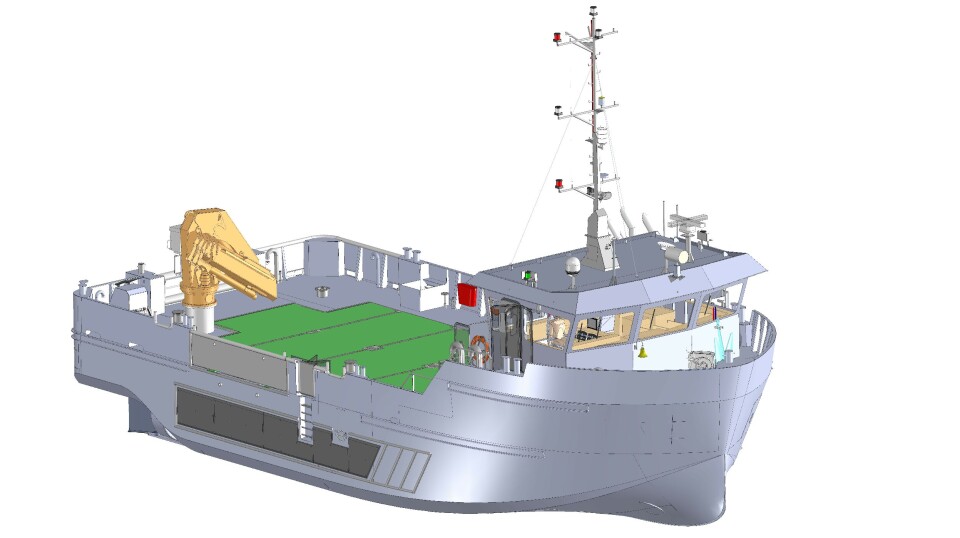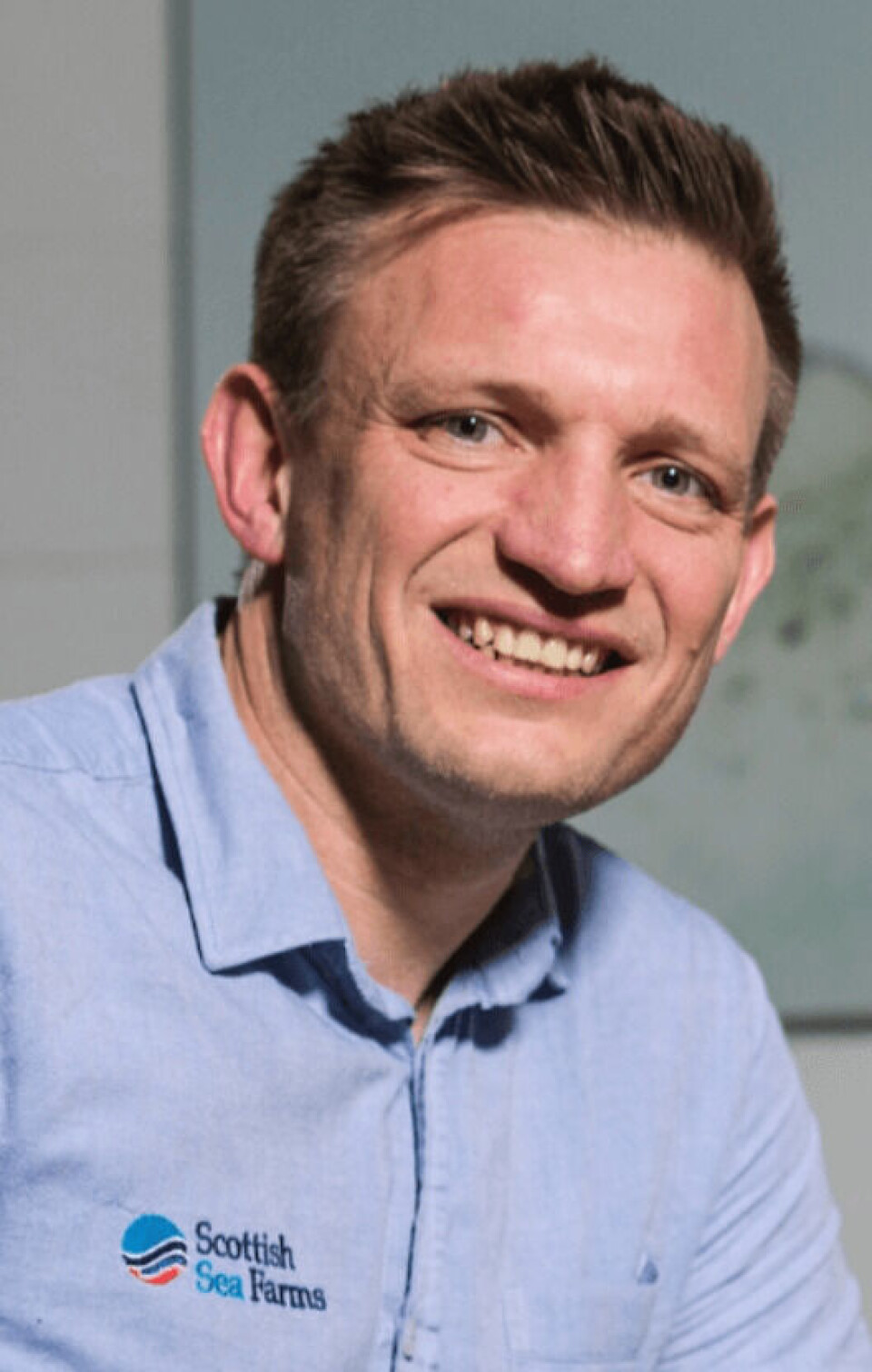
Salmon farmer buys £1.9m boat to fight gill disease
Scottish Sea Farms is set to take delivery of a new purpose-built workboat to increase response times to gill health issues.
The £1.9 million Fair Isle – named after the island that lies between mainland Shetland and Orkney – will service SSF’s more northerly regions.
SSF said it would be used to deliver proactive, preventative veterinary treatment for gill health issues as they emerge, which will in turn enable an existing workboat, the Sally Ann, to be dedicated to the company’s mainland farms, ensuring faster response times across the estate.

Significant investment
Dr Ralph Bickerdike, SSF’s head of fish welfare, said in a press release: “Recent years have seen significant investment in the surveillance of fish health and the farming environment, with water quality monitored on a daily basis and gill health routinely assessed by our farmers to detect any challenges and highlight where pre-emptive action is needed.
“Having a second dedicated workboat takes this ‘prevention over cure’ approach a key step further, enabling us to administer the best veterinary care at the earliest opportunity.”
Gill health is one of the biggest challenges facing salmon producers around the world, and as such is recognised by Scotland’s 10-year Farmed Fish Health Framework as a priority area for action.
Bickerdike said: “Typically, summer is the most challenging time of year for any salmon farmer as organisms in the marine environment grow more rapidly, posing increased risk to gill health. However, summer 2019 has been particularly challenging with an increased number of our farms experiencing gill health issues that have impacted on fish growth and survival.
“The ongoing priority is to prevent gill health from ever becoming such an issue. Investing in our ability to respond swiftly with the addition of the Fair Isle is an integral part of that strategy.”
Built by Dutch-based Nauplius Workboats, the 21.2m x 9.3m Fair Isle has a service speed of eight knots, combined with the sturdiness and stability to fulfil duties even in the more extreme weather conditions of Shetland and Orkney.
The Fair Isle is the second vessel to be built by Nauplius Workboats for SSF, the first being the 15.5m x 7.32m Sandoyne Lass which joined the fleet in 2017 and services the company’s Westerbister farm in Orkney.
Key features of the new vessel include:
- Two low fuel consumption, low noise 480 Hp Doosan main engines to power all necessary anchor-handling, towing and installation operations
- 120m² working deck capable of carrying up to 60 tonnes of equipment, mooring systems and veterinary medicines
- Large-sized HS Marine deck crane with three times the lifting capacity of Scottish Sea Farms’ existing vessels in Shetland and Orkney, providing an even safer working environment
- Comfortable onboard accommodation with three individual cabins for crew when working away from home.
Due into service in early 2020 following an 18-month build, the Fair Isle is the latest in a series of investments in gill health by Scottish Sea Farms.
Environmental monitoring
Other advances in this area include:
- Installing environmental monitoring equipment and underwater cameras at every farm for earlier detection of potential risks or emerging health issues
- Contributing £750,000 to two gill-health related applied research projects in collaboration with the University of Aberdeen, BioMar and the Scottish Aquaculture Innovation Centre (SAIC) aimed at identifying the key risk factors and how to pre-empt and avoid them
- Partnering a new PhD in collaboration with Mowi, the University of Glasgow and SAIC to develop new technologies for identifying and quantifying potentially harmful organisms within the marine environment.
Bickerdike said: “When it comes to fish health issues of any kind, pursuing prevention over cure has undoubtedly made a positive difference, helping us achieve 88% fish survival at sea in 2019 to date, despite the challenges experienced this summer.
“Clearly though, there’s still more to be learned as we strive to boost survival rates further and ensure that farmed fish have the best possible lives while in our care.”






















































